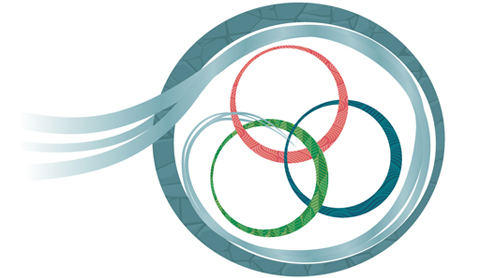Partnerships for Better Health – CIHR-ICRH Strategic Plan 2022-2025
Theme 1: Strengthening Indigenous Health Research (IHR)
- The Challenge
- A Framework for Decision-Making
- A Unifying Approach
- Priority A: Preparing Future Capacity
- Priority B: Accelerating Knowledge Through Collaboration
- Priority C: Catalyzing Impact Through Knowledge Mobilization
- Theme 1: Strengthening Indigenous Health Research
- Theme 2: Enhancing Equity, Diversity and Inclusion in Health Research
- Strategic Plan in Action

Long description
The Institute embraces allyship and recognizes the need to work with Indigenous leaders to co-develop distinction-based approaches to improve the circulatory and respiratory health and wellness of all Indigenous Peoples in Canada.
Strategic Goal
To continue to champion research activities led by Indigenous Peoples (First Nations, Inuit and Métis) and people with demonstrated culturally safe engagement with Indigenous communities.
Past
Addressing Indigenous health has historically been a focus for ICRH as circulatory and respiratory health issues are disproportionately seen in, and affect, Indigenous populations.
Sleep is also identified as a serious concern for Indigenous communities, and insufficient sleep and insomnia are linked to circulatory and respiratory health inequities.
These disproportionate health effects are a result of multiple intersecting factors that include psychosocial stressors stemming from colonization and historical trauma related to harms as the result of the residential schools system, racism and systemic discrimination (including within the health system), economic and job inequity, poor and overcrowded housing, access to safe drinking water, multiple healthcare jurisdictions and limited access to health care services due in part to rural and remote locations of some Indigenous communities.
Since 2016, ICRH has prioritized IHR in many of its activities to address these circulatory and respiratory health inequities more purposefully. Through our supporting role as an ally, we have worked with Indigenous leaders to inform our involvement and investments in CIHR programs such as the Network Environments for Indigenous Health Research (NEIHR), Indigenous component of the Healthy Life Trajectories Initiative (I-HeLTI), Transitions in Care (TiC), Diabetes Prevention and Treatment in Indigenous Communities: Resilience and Wellness.
Present
We also created tailored approaches to include IHR requirements within ICRH strategic funding opportunities. These requirements include approaches such as specified IHR funding pools within strategic funding (e.g., TiC Best and Wise Practices Grants and Phase 2 Team Grants), as well as requirements for inclusion of Indigenous-led teams and cross-cutting activities embedded within networks (e.g., Heart Failure Research Network) and consortia (e.g., Sleep Research Consortium).
ICRH has also supported focused IHR capacity development through supports of early career research awards (e.g., Women’s Heart and Brain Health Chairs and the ICRH Early Career Investigator Awards in Circulatory and Respiratory Health).
ICRH is continuing to strengthen research capacity and support the circulatory and respiratory health and wellness of Indigenous Peoples in Canada by engaging with organizational, Institute and external partners.
Future
In the future, and in the spirit of reconciliation, evidence-based solutions, grounded in Indigenous methodologies and ways of knowing, offer mechanisms to address many of the intersecting challenges and promote better health and wellness for Indigenous Peoples in Canada. ICRH will continue to prioritize IHR in strategically led activities to strengthen Indigenous research, seek advice from Indigenous leaders to develop meaningful inclusion of IHR within new funding opportunities and to support capacity development of Indigenous health leaders within the ICRH mandate. We will also work with partners to champion for inclusion of IHR activities when co-developing partner-led efforts.
Strategies
- 1) Prioritizing Indigenous Research
The Institute will prioritize Indigenous research activities while supporting strong representation of researchers who are Indigenous and those engaging in culturally safe Indigenous research practices.
- 2) Growing Capacity
The Institute will co-create diverse opportunities that support Indigenous researchers and those engaging in culturally safe Indigenous research practices across the career trajectory.
- 3) Championing Indigenous Knowledge
The Institute will continue to champion and focus on the inclusion of Indigenous ways of knowing and strength-based models into the entire research and KM cycle.
- 4) Creating Allies for IHR
The Institute will lead efforts with partners regarding inclusion of Indigenous considerations in research and KM by convening a process to share current practice and policies.
- 5) Centering Opportunities
The Institute will embed appropriate language into all Indigenous funding opportunities, promote and support Indigenous approaches to KM.
- 6) Listening and Learning
The Institute will collaborate with and seek knowledge and advice from Indigenous leaders and communities (e.g., Advisory Group on Indigenous Health).
- Previous - Priority C: Catalyzing Impact Through Knowledge Mobilization
- Next - Theme 2: Enhancing Equity, Diversity and Inclusion in Health Research
- Date modified: